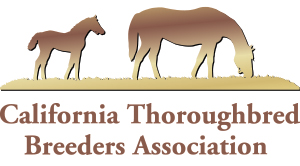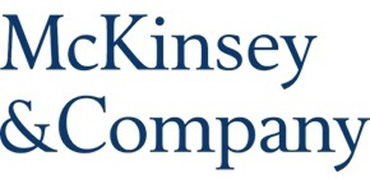Analysis from Daniel Singer and Ben Vonwiller, who lead the Global Sports & Gaming practice at McKinsey & Company in New York
NEW YORK — Now that the U.S. Supreme Court has overturned the federal prohibition on sports betting, legal sports books will likely begin operations in New Jersey, Delaware, and West Virginia by the end of the year. With the potential for seven other states (including Pennsylvania, New York, and Michigan) to legalize sports betting soon after, and up to 10 more within five years, the industry could exceed $120 billion in wagers by 2023.
While all forms of gaming ultimately compete for shares of the wagering wallet, we believe the cannibalization threat from legal sports betting is limited:
- Racing has continued to prosper in countries with legal sports betting. Although important differences exist between the United States and other racing jurisdictions, it is encouraging that the United Kingdom, Australia, and Ireland all have higher levels of per-capita gross win (revenues) for horse racing than the U.S., despite the long-term presence of legal online sports betting options.
- Very few racing fans say they would bet less. In our March 2018 survey of 264 horse racing bettors, only 4% said they would bet less on racing if sports betting were legalized in their state. However, 55% of those bettors say they already bet on sports, suggesting that most of the substitution of sports betting for race betting has already happened (via offshore sports books or other means).
- In Nevada, where sports betting has been legal for almost 50 years (and mobile sports betting has been available since 2011), Thoroughbred racing still generates $275 million in handle per year, or 3% of the U.S. total. Given the volume of tourism in the state, it is hard to determine the level of per-capita race betting in Nevada, but it appears to be no less than in the rest of the country.
THE CROSS-SELL OPPORTUNITY
In states with legal sports betting, particularly in those that allow digital wagering, racing can benefit from cross-selling to sports bettors.
The most popular betting sports in the U.S. have average game lengths measured in hours (the National Football League is 3:12; Major League Baseball is 3:05; the National Basketball Association is 2:15). At two minutes, a Thoroughbred race is a natural cross-sell opportunity for sports books for bettors to fill downtime before another contest and during game breaks.
Horse racing will have to contend with other forms of wagering for that cross-sell opportunity; for example, UK sports books promote in-game wagering for other sports, and casino games and poker generated 27% of online revenue for Paddy Power-Betfair last year.
Cross-selling effectively depends on minimal friction in placing a bet. For an online sports bettor, that means presenting racing as one of the available sports (i.e. featuring racing as a “tab” in the user interface), using the same account to fund the bet, and the same registration process to establish the account. The user experience (navigation for the app or web page, terminology, layout) should be the same as for sports betting, to make placing a racing bet as easy and intuitive as possible for a sports bettor. Another form of cross-selling could be parlays across racing and other sports.
The UK Gambling Commission regulates online betting for both sports and race betting, but in the U.S., states will most likely split regulatory oversight for sports from horse racing. For example, in Pennsylvania, the Gaming Control Board will regulate sports betting, but race betting will continue under the Horse Racing Commission. In Delaware the state lottery runs sports betting, separate from the Thoroughbred Racing Commission.
With split authority, there could be multiple impediments to cross-selling racing, such as:
- Incompatible registration requirements, such as proof of age and tax ID;
- Incompatible operating requirements, such as the location of servers, anti-fraud specifications, or self-exclusion policies;
- Incompatible rules on marketing.
Any of these incompatibilities could make it infeasible or illegal for an operator to offer sports and race betting on the same platform. While that operator could still promote a horse betting application (advance deposit wagering, or ADW) to sports bettors, the extra steps to create and fund another account would dramatically reduce the cross-sell opportunity. Ensuring consistency and interoperability between sports betting and horse race betting platforms should be a top priority for tracks and horsemen.
THE TELEVISION OPPORTUNITY
Once a critical mass of states legalizes sports betting, cable sports networks will launch daily studio shows on “what to wager tonight.” Racing cannot afford to be left out of the conversation—racing is complex and fragmented, and the number of TV journalists with deep racing expertise is dwindling.
Leading tracks and racing associations will need to direct TV journalists to the key events, stories, and characters of Thoroughbred racing each day. Racing should expand in-house production of high-quality video packages (highlights, profiles, interviews) to feed into the studio shows. The networks will be interested in broadcasting quality races in a “whip-around” format (similar to NFL RedZone) between 2-5 p.m. Eastern to lead into the wagering shows. To capture that opportunity, tracks will need to coordinate their schedules and consider moving higher-purse races earlier in the card.
INNOVATING RACING BETS
In the UK, in-play betting for sports already makes up 50% of handle. Margins are lower than for pre-game bets, but volumes are high and growing. In-game bets allow the sports book to engage the player continuously throughout the contest and increase average wagers per customer.
To maintain wagering volumes on horse racing, UK bookmakers have innovated as well, offering insurance, cash-outs, and even in-race bets. UK books offer a bet that pays if a horse finishes fourth or better, which allows novice bettors to cash winning tickets more often (albeit with low payouts). In major events such as the Grand National, a place bet can pay through sixth place.
With legal sports betting in the U.S., racing will need to innovate the betting experience more rapidly than in the past, possibly with implications for new tote investments and/or merged pools.
REVISITING THE CASE FOR FIXED ODDS
The key difference between pari-mutuel and fixed-odds betting is when the odds are set: for fixed-odds, the player locks in the odds at the time the bet is placed; while in pari-mutuel, the odds are set when the race begins. In the U.S., legal sports books will operate with fixed odds and possibly exchange wagering, which enables player-to-player fixed-odds betting. We need to reconsider whether a shift to fixed-odds betting would maximize the appeal of race betting to sports bettors.
In the UK, exchange betting for sports has appealed to younger players and arguably has expanded the universe of bettors. Fixed-odds or exchange betting would also address the concerns many current racing fans have with past-post odds changes (which would be expensive to address through changes to the tote systems) and lack of visibility to odds for exotic bets.
In jurisdictions, such as Australia and the UK that offer pari-mutuel betting in parallel with fixed-odds betting, handle has shifted steadily to fixed-odds. For example, in Australia, fixed-odds now represents 39% of Tabcorp’s racing revenues vs. only 14% in 2013. Fixed-odds revenue in Australia has grown at 25% per year since 2013 while pari-mutuel revenue has decreased at 5%.
Although the UK commission on exchange betting is only 2%-5%, there is no barrier to U.S. states setting commissions at 10% or higher, allowing for host fees to tracks that are comparable to those under current pari-mutuel structures. For fixed-odds wagers, the same level of takeout could be accomplished through a royalty or similar fee levied on handle.
In a fixed-odds system the bookmaker takes the financial risk of underwriting bets, which is why sports books set limits on wagers and have sophisticated systems and staff to analyze and manage risk. For U.S. racing, operators would need either to develop those skills or outsource the trading/risk management function.
Operators could offer fixed odds for single-race bets while using pari-mutuel pools for multi-race bets (which have the potential for multi-million-dollar payoffs).
Fixed-odds systems make it easier to bet against a horse and therefore could elevate the risk to competitive integrity. Therefore, a shift to fixed-odds would heighten the need to elevate and standardize testing, monitoring, and enforcement of racing rules.
Legalization of sports betting should be a call to action for the racing industry. Regardless of whether the industry moves in favor of fixed-odds/exchange betting, in our view the upside potential in reaching new fans and innovating betting platforms greatly exceeds the downside risk of cannibalization.


